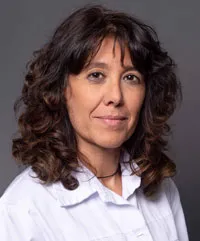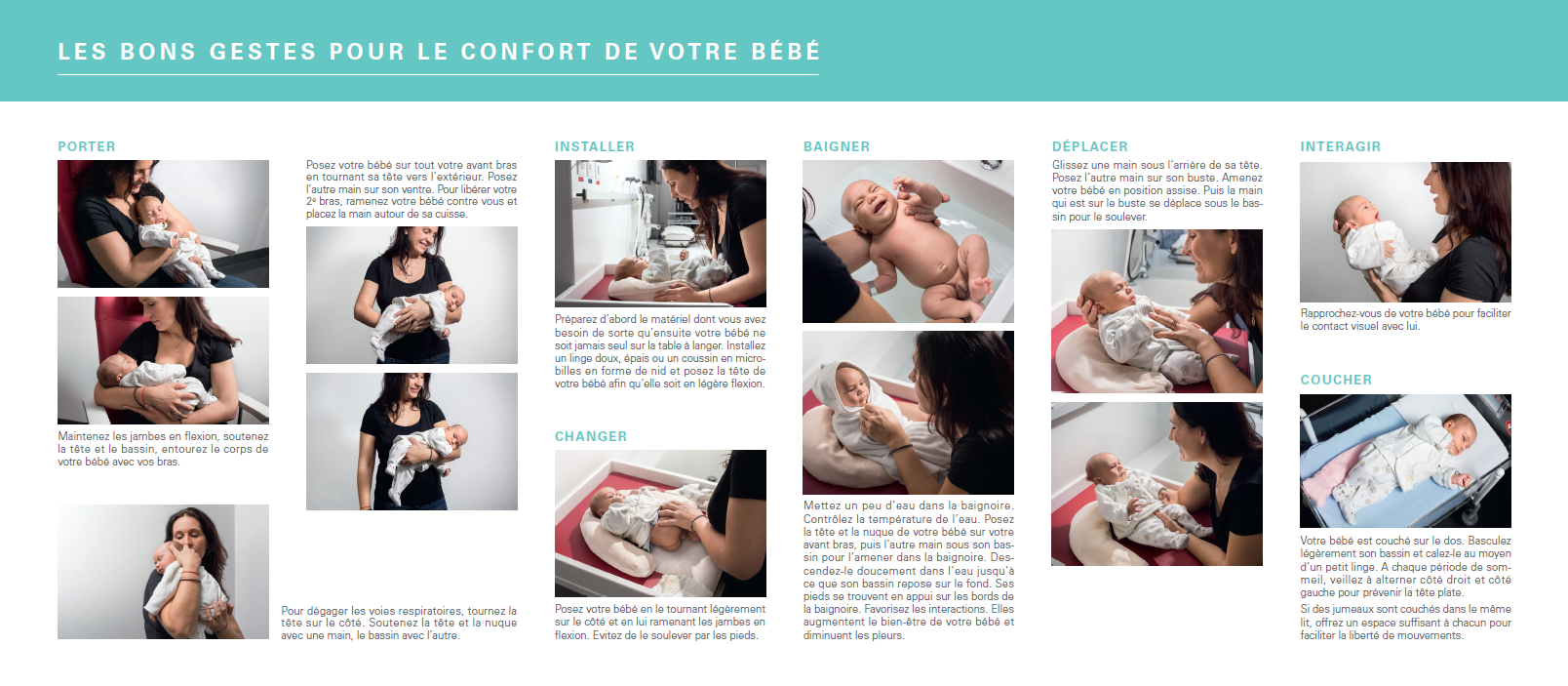- "Skin to skin"
- Rooming-in
- BBvision
- The Neonatal Unit
- Donation of feto-placental blood
- Returning home
- The right gestures for your baby's comfort
After the birth, you remain for two hours in the delivery room to allow the medical team to deliver care and monitor both your health and that of your baby. If you wish, you can breastfeed your baby for the first time.
"Skin to skin"
“Skin to skin” helps your baby adjust to his/her new environment and helps you both bond. Placed naked on your chest, he/she receives heat and comfort, which will sooth his/her cries. Your baby recognizes your heart beat, your voice and your smell. In the event of a caesarean section, the father carries out the “skin to skin”.
Breastfeeding is made easier with this technique as the new-born instinctively looks for his/her mother’s breast. We encourage you to pursue this technique when you are back home.
Rooming-in
Sometimes the mother and the new-born are momentarily separated for medical or safety reasons. Rooming-in means you are authorized to have your baby with you if you have to remain in hospital for continuous care. This proximity deepens the bond at an early stage. Our team cares for you and your baby.
BBvision
BBvision is a system that allows you to be in regular visual contact with your baby when he/she is somewhere else, for example in the Neonatal Unit. The device is easy and quick to use. Thanks to
Scopia, a free to download mobile application, you can even see your baby when you are not in the hospital, which is particularly useful to the father.
The Neonatal Unit
Some babies require increased monitoring and specific care after birth. HUG’s Neonatal Unit has 17 beds. A team of caregivers, nurses and doctors specialized in neonatology and intensive care provide babies with care 24/7. If needed, they work in conjunction with other specialized doctors to ensure the best possible care is provided to your child and guarantee your support.
Donation of feto-placental blood
Feto-placental blood is the blood contained in the umbilical cord and the placenta. It is an incredible source of cells for the treatment, by way of transplantation, of child leukemia and severe blood diseases. If you authorise the donation, the feto-placental blood is frozen, placed in a bank within the HUG and, if required, given anonymously to a sick child in Geneva, in Switzerland or anywhere in the world.
More information : +41 (0)79 553 23 68
Returning home
For a complication-free delivery, hospitalization is generally two to three days. An early return home within 48 hours is also possible with the help and support at home of an independent midwife. For a birth by caesarean section, hospitalization is generally four to five days.
Your discharge from the Maternity is set in agreement with the midwife, gynaecologist and paediatrician. It is scheduled for the morning, before 11 am. Beforehand ask your partner, a family member or friend to come and pick you up. The caregivers looking after you contact the independent midwife that you have chosen and they may have already met during your pregnancy. They pass on any information useful to your return home.

